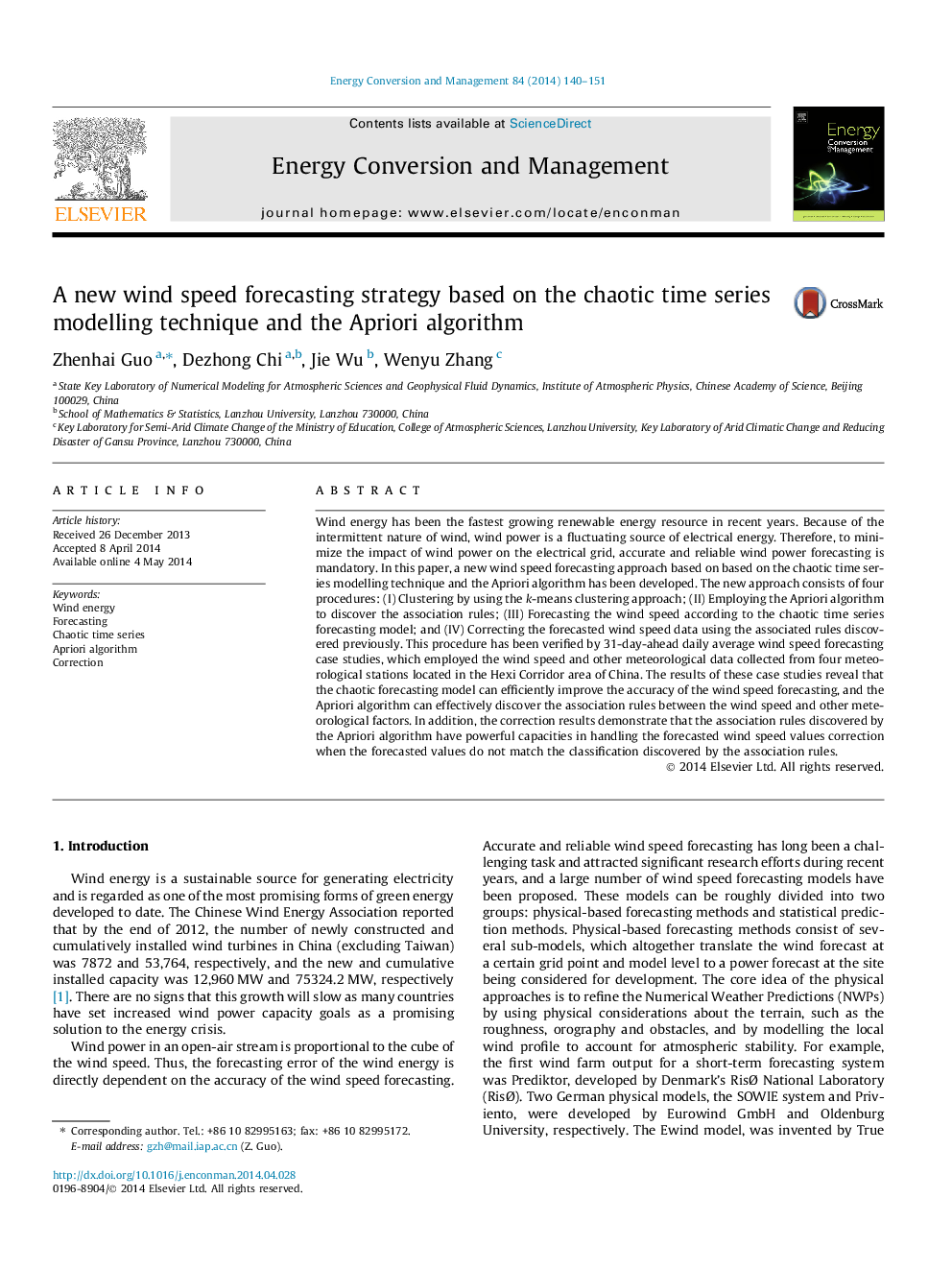| Article ID | Journal | Published Year | Pages | File Type |
|---|---|---|---|---|
| 763817 | Energy Conversion and Management | 2014 | 12 Pages |
•Impact of meteorological factors on wind speed forecasting is taken into account.•Forecasted wind speed results are corrected by the associated rules.•Forecasting accuracy is improved by the new wind speed forecasting strategy.•Robust of the proposed model is validated by data sampled from different sites.
Wind energy has been the fastest growing renewable energy resource in recent years. Because of the intermittent nature of wind, wind power is a fluctuating source of electrical energy. Therefore, to minimize the impact of wind power on the electrical grid, accurate and reliable wind power forecasting is mandatory. In this paper, a new wind speed forecasting approach based on based on the chaotic time series modelling technique and the Apriori algorithm has been developed. The new approach consists of four procedures: (I) Clustering by using the k-means clustering approach; (II) Employing the Apriori algorithm to discover the association rules; (III) Forecasting the wind speed according to the chaotic time series forecasting model; and (IV) Correcting the forecasted wind speed data using the associated rules discovered previously. This procedure has been verified by 31-day-ahead daily average wind speed forecasting case studies, which employed the wind speed and other meteorological data collected from four meteorological stations located in the Hexi Corridor area of China. The results of these case studies reveal that the chaotic forecasting model can efficiently improve the accuracy of the wind speed forecasting, and the Apriori algorithm can effectively discover the association rules between the wind speed and other meteorological factors. In addition, the correction results demonstrate that the association rules discovered by the Apriori algorithm have powerful capacities in handling the forecasted wind speed values correction when the forecasted values do not match the classification discovered by the association rules.
